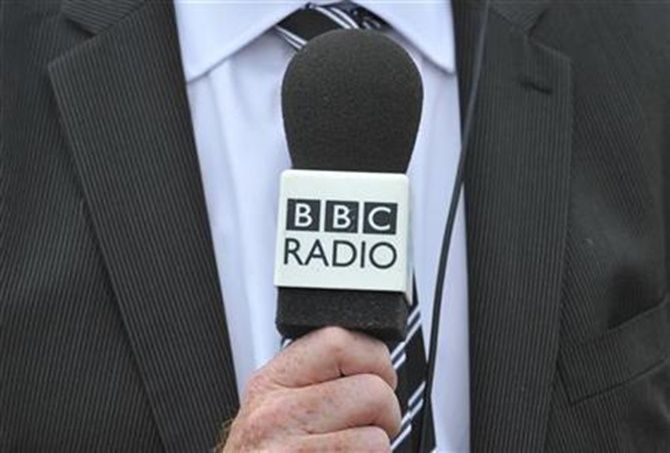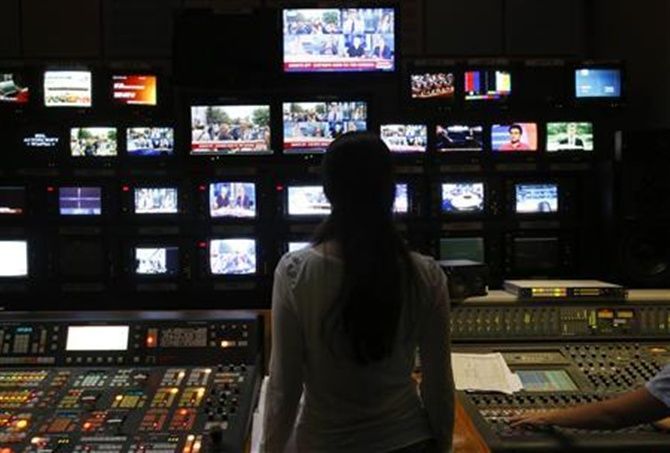'We're still of the camp that editors run news organisations. Having said that, we have a lot of technology and business people high up in the decision making.'
.jpg?w=670&h=900)
Francesca Unsworth, director, BBC World Service Group runs an army of 2,500 journalists (and support staff) in 113 countries that churn out what you, I, and everyone outside of the UK see on BBC World News, radio or online.
"If we want to be a serious media company, we have to have an international offering. If we were broadcasting only in the UK, we would be producing a much poorer product," says 57-year-old Unsworth. That, in fact, was the genesis of the world service.
It was funded for years by the British Foreign Office because it was meant to serve British interests abroad.
Last year, in the process of cost-cutting, the world service lost its government funding.
It is now funded by the licence fee that funds the rest of the BBC, some advertising and profits from BBC Worldwide.

"That is good for us because we have never regarded ourselves as a state broadcaster."
"That's what differentiates us from other media players such as CCTV (the Chinese state broadcaster)," says Unsworth.
Even with millions of dollars in funding, CCTV is yet to make the same mark that an Al Jazeera or a BBC has made.
The whole process of building a global news brand seems more difficult today than it ever was. Social media and the internet makes it easier to reach out and get more information.
However, it also helps anybody to enter and start offering 'news'. "It is easy because there are now so many ways of reaching people - TV, radio, online.
 The hard part is the safety issues around discovering stories and the regulatory issues in some countries," says Unsworth (see left).
The hard part is the safety issues around discovering stories and the regulatory issues in some countries," says Unsworth (see left).
In FM, TV, internet or mobile, the "content is being filtered through someone else's regulatory system," worries Unsworth.
That makes it easier for them to block the service.
Then there are the dangers of reporting from places such as Syria or Afghanistan, because reporters are not really free to roam around in these places. And there are blighted ones such as North Korea.
"If ever, there was a rationale of the world service, it is for the people of such a country.
But there is no way to broadcast to the people of North Korea," she sighs. What about the other markets where there is so much information available? Why would anyone bother with BBC?
"What works for us is our 80-year-old reputation; we are trusted because we are free of proprietorial, government or commercial interests. We make take ads on some services, but we do not allow commercial interests to dictate our news agenda," she says, looking at me over her glasses.
The BBC's neutral stand, however, is funded by the British taxpayer.

Otherwise "It is very difficult to make money in the international market (for news). Out of most international news channels, only CNN is making money, I think. BBC News just about breaks even. We could make more money if we slashed production costs on news or took a lot more sponsorship," says Unsworth.
Here is another conundrum - half the world's population is people below 28 years and most of them are not watching TV the way their parents did. They access different things at different times on different devices. How can an 80-year-old brand set the agenda for this lot?
"There is no such thing as a news agenda, but we set the editorial agenda and put a lot of thought into it. For example, conflict is a must do. But beyond that, there is a world of subject matter - technology, lifestyle, economy," says Unsworth.
India is one such market. The BBC has leveraged its recognition and history into 15 million page views across devices.

It is expanding into the regional languages - largely through bulletins on other channels in Tamil or Hindi in its bid to reach out to growing tier 2 and 3 markets.
"The smartphone market in India is set to explode. How do we reach out to that?" is her worry.
As algorithms determine news consumption and technology makes news-gathering cheaper and faster, will the best news organisations be run by techies or editors?
"We're still of the camp that editors run news organisations. Having said that, we have a lot of technology and business people high up in the decision making," says Unsworth clearly hedging her bets.
For her, the biggest challenge is not about whether techies or editors will dominate newsrooms.
It is, "how to maintain a direct relationship with audiences".









